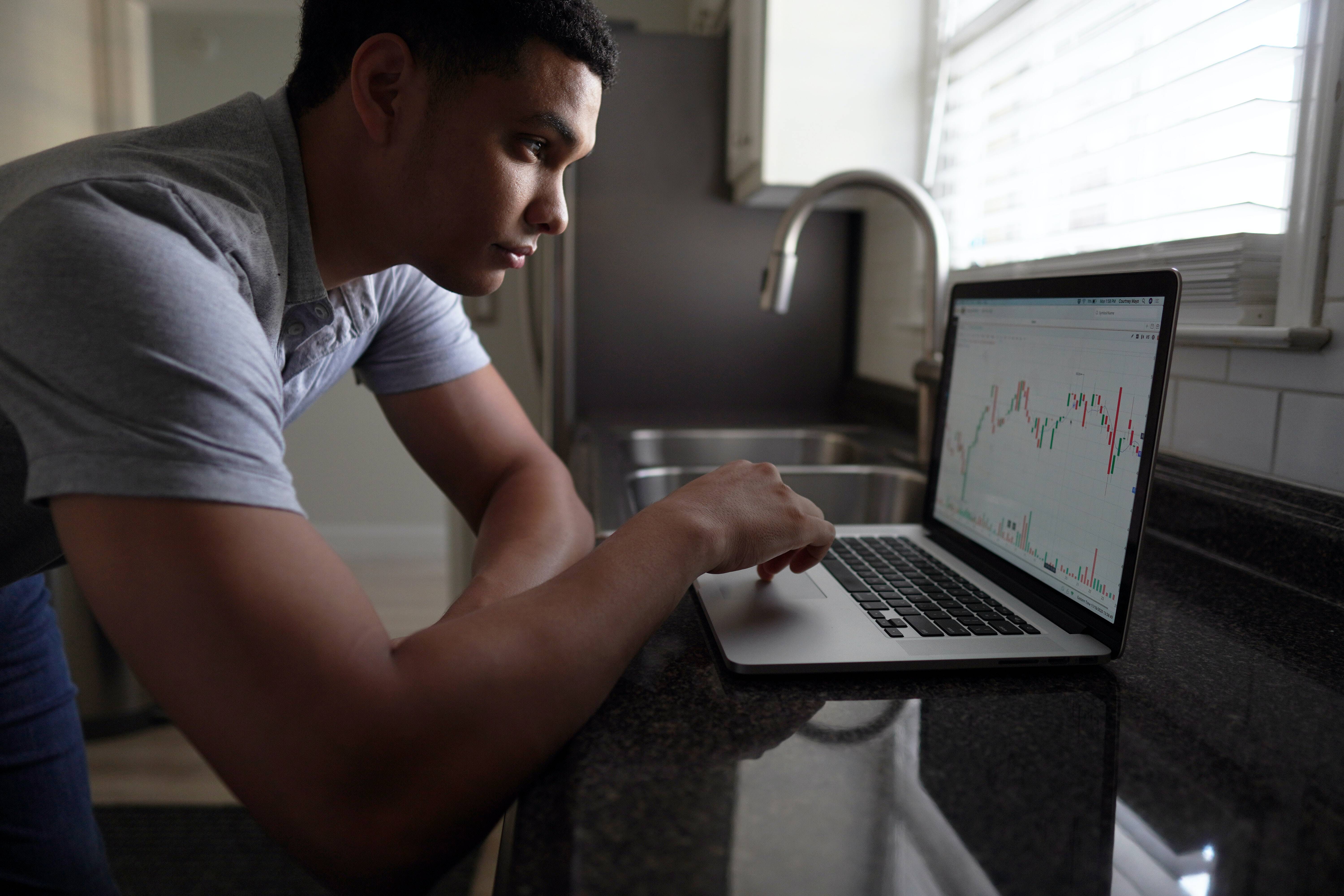33 Years Worth of CX Insights From a Successful Online Investor
by Relay42 on 15.3.2021

Mark Laurora started investing casually 33 years ago. Today, as a retired publishing industry executive, investing is his primary passion and hobby. A lot has changed since he bought his first two stocks back in 1987, and in this article, we’re zooming in on the biggest opportunities for online trading platforms to win, according to someone who’s seen it all.
Ease of entry
Mark has been with the same brokerage from the very beginning. “In 1987 after the crash I bought 2 stocks,” he recalls. “One doubled and one went bankrupt, but I made more on the one that doubled so I got hooked. It made sense to me because if you do the research then you’re not really gambling — you’re buying a piece of the world. I wanted to expand my piece of the world.”
Back in the late ‘80s, however, expanding one’s piece of the world was significantly more expensive. “You’d have to pay, say, a $400 fee for $5,000 investment in those days — it was just the cost of doing business.”
Today it’s a different story. You’re not paying to play anymore, which has significantly lowered the barrier to entry. Where before there were fewer players and a higher cost to play, today there is an abundance of potential traders and investors online — 9.6 million (or 1 in every 781) to be exact.
Trading is trending
The millennial generation has entered the trading world, cryptocurrency is an increasingly hot topic, and the more recent GameStop short squeeze debacle has made trading almost fashionable. Trading has never been more accessible, and everyone’s looking to get their piece of the world, too.
Particularly with so many stuck at home, bored during the pandemic, the thrill factor of trading is certainly not to be downplayed. “There’s absolutely an entertainment factor to trading,” says Mark. And still others are looking to replace lost income. “If you don’t have a lot of money and you have $1,000, you can make a bet on an option and potentially earn triple that back or much more, it makes sense that it might be a reasonable thing for people to do.”
Getting started is a different game today than it was in 1987
But hot trading trends and a bored and broke population don’t mean that online brokers aren’t still struggling with acquisition.
While online trading platforms have drastically simplified the process of trading, getting started with trading online requires sharing a lot of personal data and documentation. And once a potential trader has registered, there’s the challenge of moving them from a paper account to real trades. Combine a lengthy sign-up process with a steep learning curve, and it’s no surprise that online trading platforms see high drop-off rates during the acquisition phase.
Of course, this isn’t a problem for seasoned veterans like Mark, but it does impact the overall market. “Robinhood made people a lot of money and got a lot of people into the game. The more people that get in the game, the better. It means more eyeballs on the same stock, so you’re going to get a greater consensus and direction, so you’re probably getting more true value. High barriers to entry kept a lot of people out; it was pay-to-play. Once my broker came up with low (and 0) commission trades, I started trading more than I used to, and I adjusted more than I used to.”
How has your broker earned your loyalty?
“Investing can be confusing, intimidating, and you’re playing a game you don’t have control over,” admits Mark. In an age where it’s easy and normal to switch from vendor to vendor — not just in trading, but in telecoms, utilities, and just about everything else— it’s almost romantic to think of someone staying loyal to the same company for 33 years.
For Mark, however, it’s quite simple. His loyalty comes down to two main points:
- His brokerage provides good information
- His brokerage is conservatively run
Mark has done well with his brokerage, and he’s happy with their service. Because he is focused on long-term investment over trading, he is perhaps lower maintenance than others who are looking to trade fast. “My brokers offer me robo-advice with AI, they offer me my own personal concierge. I don’t want to pay them more, so I just use the info I can gather from them and other sources.”
Availability of information
Getting the best information as soon as possible is essential for investors and traders alike. “Traders have been around for a long time,” says Mark, “but now everyone has the same information — that’s how the laws were changed over the last 20 years. So, rather than getting the information, which used to be the challenge, today it’s more about what someone is trying to do with that information.
“If you have a good brokerage company,” he explains, “they gather that information in one place for you so you can look it up. I can see what’s really happening with a stock — is all the fluff real or are people making it up? You’re looking for a place you can get good information and information you can count on.”
Personalization
From Mark’s perspective, the more personalized the information, the better. “Traders want to know everything about their stock the second it comes out — when something’s published, they want to see it right away. Real-time is essential.”
According to Mark, online trading platforms are still struggling to provide the best information in the best place for each investor and trader. “Brokers try to put so much information on their websites that it can be confusing.” In his case, as a long-term investor, he’s typically only doing a couple of things, and that requires some depth of information in specific areas.
“But there’s some stuff on my broker’s website that is honestly too much — keep it simple and make it easy for people to find what they’re looking for. If they can parse the information for you, they can provide an extra service in the analytics.”
Information and communication channels
“I’ve got more information than I know what to do with, so I’m pretty happy. But there’s always going to be an improvement. Robinhood recently made people a lot of money and got a lot of people into the game. The more people that get in the game, the better. More eyeballs on the same stock, so you’re going to get a greater consensus and direction, so you’re probably getting a truer value.”
Mark prefers to get his information from his broker’s website on his laptop and from the weekly issue of Barron’s that lands on his driveway on Saturday morning. He knows he’s old school, but it works for him. In his words, “The younger generations have ways of consuming that I haven’t even heard of yet, but I’m comfortable with what I do."
Of course, having been in this game for over 3 decades, he has some ideas about how investing has shifted, and where it’s going next.
“A lot of people trade on their phones, but I don’t personally like it. Brokers are marketing now to how people want to consume. I know I can get all the information online, but I like getting my paper. I know how I like to consume information; the marketing for any new brokerage coming out is going to have to tailor those channels to individuals.”
How online trading platforms can step up their CX
Bottom line? The online trading industry has come a long way in the last 33 years, and there is still room for improvement.
What do traders and investors want?
- The best news, first
- The information they’re looking for, right where they’re looking for it
- Advice via their preferred channel
- Low barrier to entry
- Security, the thrill of the trade — and of course, some earnings.
From our perspective, personalization and journey orchestration technology offer the key for online trading platforms that want to step up their CX and play to win with investors across generations. Get in touch with us if you’d like to learn more about how data marketing technology can help your online trading platform offer a personalized experience that’s better for them, and for your business.
You May Also Like
These Related Stories

Responsible Marketing: It’s Not Just Courtesy, in Europe it’s the Law

How Airlines Can Increase Cross-Sales and Boost Customer Satisfaction


.png?width=786&height=265&name=Relay42%20Demo%20Banner%20(1).png)